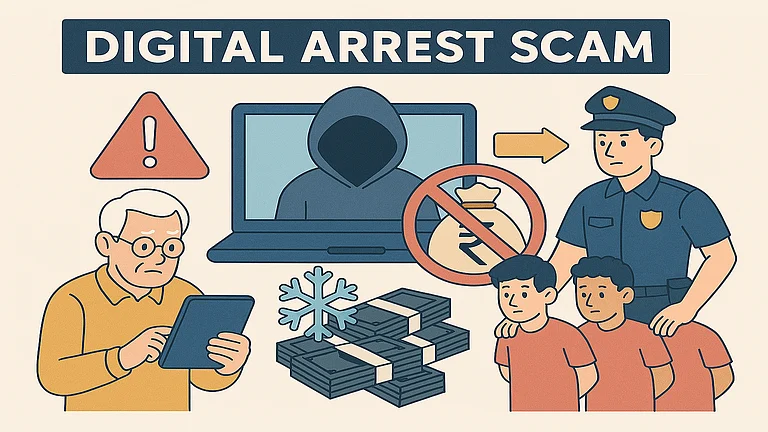With the festive season in full swing, shopping grows more intense making people more vulnerable to digital payment frauds. The rush to find great deals can cause people to overlook security measures, while the surge in online transactions creates more opportunities for scammers. To help prevent financial loss during this joyful time, it’s important to know the kinds of UPI scams and follow key advice from the National Payments Corporation of India (NPCI) for safer shopping.
Common Types of Digital Payment Scams
Phishing Scams: People can be deceived into disclosing their UPI credentials by fraudsters who craft fake messages that seem real. These alerts could indicate that there is a problem with the account or present special savings.
Fake QR Codes: Online scammers create and disseminate counterfeit QR codes. Customers who scan these codes may be taken to bogus websites, where they may be asked to provide private financial information.
Impersonation Scams: Scammers claim to be someone the user knows such as a friend or family member and ask for support accessing their account. They exploit the victim’s trust to gain sensitive information.
NPCI’s Advice to Prevent Digital Payment Fraud
The National Payments Corporation of India highlights the importance of consumers being cautious about digital payment scams.
1. Beware of Impulse Buys: Attractive promotions and discounts can lead to impulsive purchases. In your excitement to acquire these offers, you may ignore the platform's validity. To avoid scams, study unfamiliar sellers and verify their credibility.
2. Limit Personal Information: When signing up for deals, be cautious with the personal information you provide. Only give vital information as revealing too much information increases your chance of data theft and privacy violations. Protect your personal information by being judicious about what you share.
3. Avoid Public Wi-Fi for Transactions: Beware of making purchases over unsecured networks, such as open Wi-Fi at shopping malls. These networks may expose your financial data to hackers, putting your accounts at risk. When possible, make transactions via a secure connection or over mobile data.
4. Stay Alert for Phishing Scams: People who make frequent purchases during the festival season are in the threat of losing track of their orders and falling victim to phishing scams. Always double-check payment links and alerts before clicking on them to prevent falling victim to fraudulent delivery messages that could compromise your financial security.
5. Use Strong Passwords: Stay clear of utilizing default or simple passwords for your accounts as this leaves you open to attack from hackers. Create secure kind of passwords for every account you have instead. By using this technique your vital information is shielded from unwanted access and internet security is strengthened.














